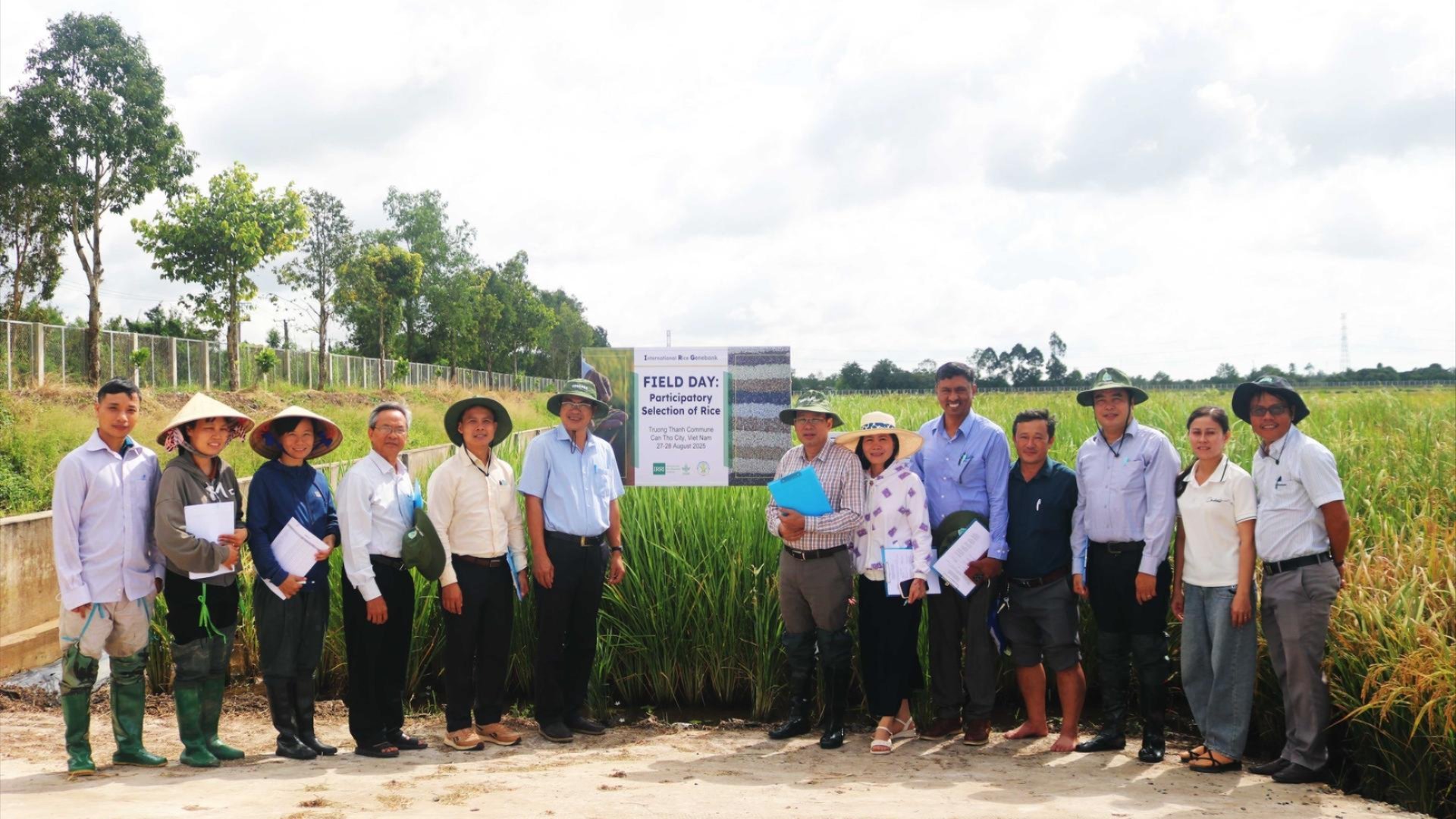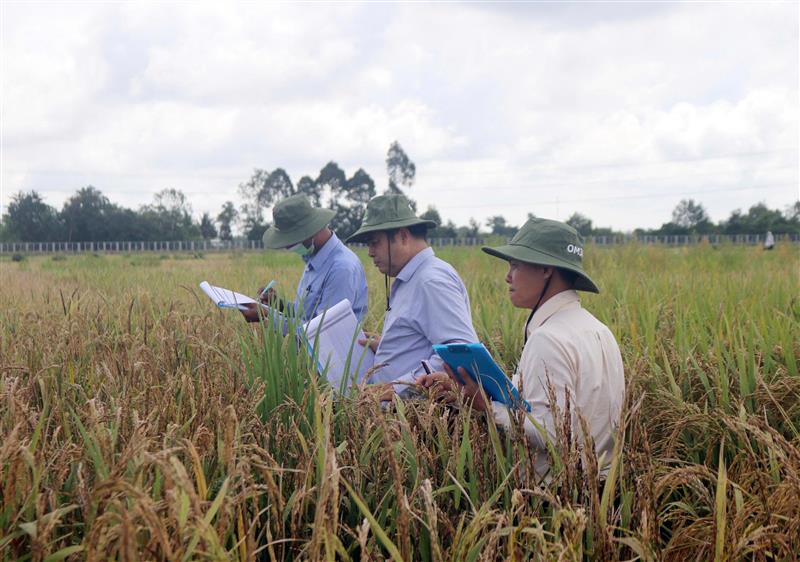Field Trials in Vietnam Point to Stronger, Climate-Ready Varieties

CAN THO, Vietnam (28 August 2025) — Farmers in Vietnam could soon benefit from new rice varieties that deliver higher yields, better grain quality, and stronger resilience to pests, diseases, and climate change.
At a recent field day in Can Tho, researchers and partners evaluated 785 exotic rice accessions from the IRRI’s International Rice Genebank (IRG). The trials were led by the Cuu Long Delta Rice Research Institute (CLRRI) and the Field Crops Research Institute (FCRI). It builds on earlier work with 1,902 African rice accessions, accounting for 17% of all African varieties tested by partner institutes, as well as materials from the Philippine Rice Research Institute (PhilRice). In 2024, almost 4,000 accessions were also tested in Indonesia.
The IRG’s vast diversity is enhancing breeding efforts by giving scientists direct access to traits for yield, grain quality, and stress tolerance that may not be found in local varieties. This access shortens breeding cycles and speeds up the release of improved varieties that cater to both farmers’ and consumers’ needs.

Promising rice lines identified through participatory selection will move into partner breeding programs and will be tested in farmer-managed fields to confirm their performance in field conditions. Notably, FCRI has already identified lines well-suited for organic cultivation. This minimizes reliance on chemical fertilizers and offers environmentally friendly options for farmers.
Regional collaboration was also a highlight of the field day. Rice researchers representing Lao PDR and Viet Nam, including representatives from the National Agriculture and Forestry Research Institute (NAFRI) of Lao PDR, and Viet Nam’s FCRI, Mekong Delta Development Research Institute (MDI), and Plant Resources Center (PRC), were present and actively engaged.
Hosted by CLRRI, in partnership with IRRI, the two-day event was organized under the CGIAR Genebank Initiative and supported by the Crop Trust’s Biodiversity for Opportunities, Livelihoods and Development (BOLD) project.